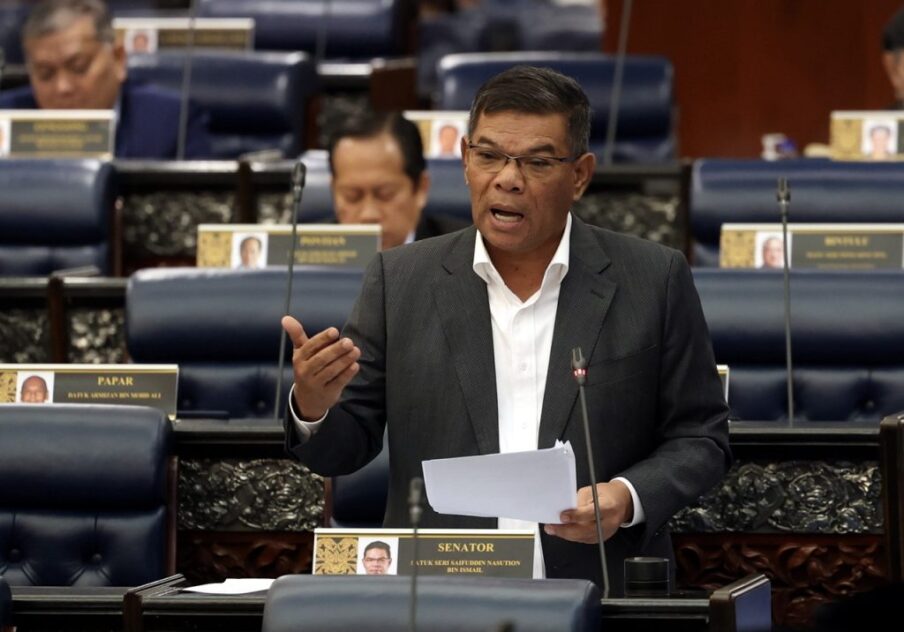“TEACHING is the one profession that creates all other professions.” This age-old adage speaks volumes about the profound impact educators have on the world. If teaching shapes all other professions, then educators, by extension, are the architects of the future.
They don’t just impart academic knowledge; they also mold the attitudes, values, and behaviours that shape the future generation.
Educators are more than just knowledge carriers—they are influential role models who profoundly affect the lives of their students. From early education to tertiary studies, educators play a constant and pivotal role in shaping their learners’ values, attitudes, and behaviours.
In fact, the influence of an educator often extends far beyond the classroom, as students look up to them and seek to emulate their actions, behaviours, and mannerisms. Educators are thus not only teachers but also motivators, guiding students in how to approach life itself.
To be effective role models, educators must be intentional in their behaviour, aware that their actions, attitudes, and beliefs are constantly being observed. This means that every gesture, every word, and every choice reflects the values they want to instil in their students.
After all, educators must practice what they preach. If an educator expects their students to act in a certain way, it is only fitting that the educator sets the example.
For instance, if punctuality is important, an educator should consistently arrive on time. If they expect timely task submissions from students, they too must honour deadlines and return graded work on schedule.
The saying “Do as I say, not as I do” simply doesn’t work in the classroom. Students are astute observers and can quickly detect any discrepancies between what is preached and what is practiced.
Hypocrisy, especially when educators fail to “walk the talk” can erode trust and respect, leaving students disillusioned and searching for alternative role models.
Consistency between an educator’s words and actions is critical in maintaining credibility and fostering an environment of mutual respect.
Respect is a cornerstone of effective teaching. Students are not just learning academic content—they are also learning how to interact with others, how to behave, and how to approach challenges.

Educators must therefore choose their words and tone of voice carefully, demonstrating respect for all individuals, regardless of their differences. Harsh words, threats, or intimidation have no place in the classroom.
Discipline should always be based on respect for students’ humanity, guiding them toward better behaviour through understanding rather than fear.
As D.C. Tosteson aptly put it, educators must recognise the value of the one thing they have—themselves. Everything else can be found in textbooks, but the educator’s example is irreplaceable.
A student’s perception of how to navigate life, how to handle difficulties, and how to show empathy is largely shaped by the way educators conduct themselves.
A good role model doesn’t just teach; they leave a lasting impression on how students will act in the face of adversity and challenge.
It’s important to remember that perfection is not the goal. Both educators and students are fallible, and mistakes will inevitably occur. The key lies in continuous reflection and self-improvement.
Educators must be vigilant about their behaviour, constantly striving to improve, recognizing that their actions have a profound impact on the learners they nurture.
While it may seem demanding to always be mindful of one’s actions, the rewards are immeasurable. After all, being an educator is a privilege—a chance to shape future leaders, thinkers, and compassionate individuals.
In conclusion, the role of an educator extends far beyond simply teaching academic content. Educators are the torchbearers for the future, and their actions speak louder than any lesson plan.
Through their example, they shape the values, attitudes, and behaviours that will guide the next generation. Being an educator is not just a job—it is a responsibility and a blessing.
It is an opportunity to positively impact lives and leave a legacy that will endure far beyond the classroom. Every educator has the power to be a role model, influencing not only what students learn but who they become. – April 25, 2025
The author is a Lecturer at the Languages and Communication Department, College of Continuing Education (CCEd), Universiti Tenaga Nasional (UNITEN).
The views expressed are solely of the author and do not necessarily reflect those of Focus Malaysia.
Main image: Ideogram









